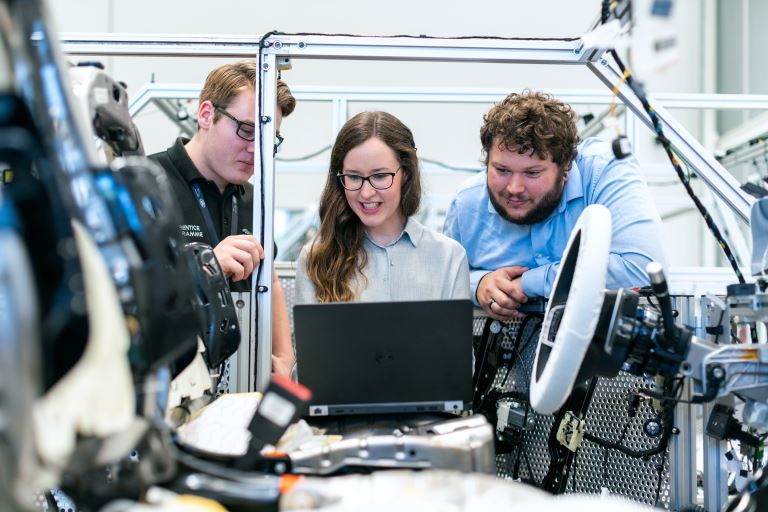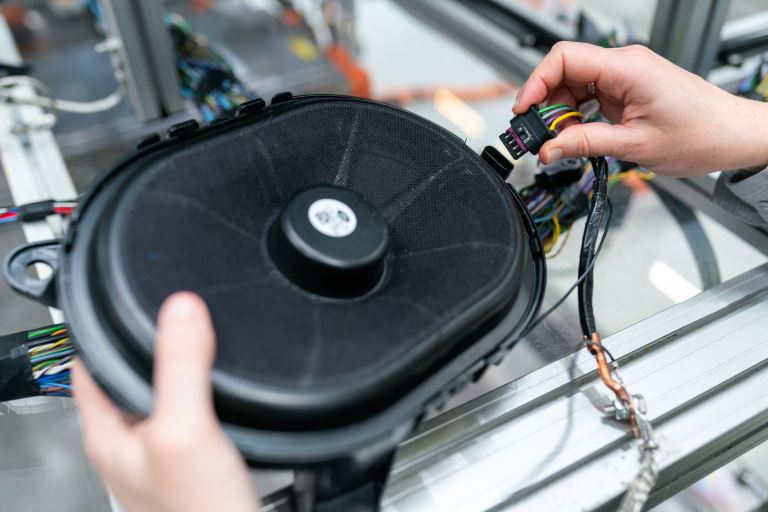
What Are the Skills Needed for Audio Engineering
pThere are several skills needed for audio engineering technical knowledge listening skills attention to detail creativity problemsolving skills interpersonal skills time management skills and computer skillsp
Many people come to us with questions about skills needed for audio engineering. It's a common inquiry we get more often, and I thought it wise to create this article so I can help as many people as possible learn about the skills needed for audio engineering.
There are several skills needed for audio engineering; technical knowledge, listening skills, attention to detail, creativity, problem-solving skills, interpersonal skills, time management skills, and computer skills.
As you read, you will learn about the skills needed for audio engineering and their importance. Also, get to know more about the importance of audio engineering.
What Are the Skills Needed for Audio Engineering
Audio engineering is capturing, mixing, and manipulating audio for various purposes. Such purposes include music production, film and television post-production, live sound reinforcement, and video game development. It involves using specialized equipment, software, and techniques to record, edit, and enhance audio content.
Audio engineers work in a variety of settings, including recording studios. They are responsible for various tasks, such as setting up and operating recording equipment, selecting and placing microphones, and mixing and editing audio tracks. They also collaborate with musicians, producers, and other creative professionals to achieve the desired sound for a particular project. Here are some of the critical skills that audio engineers need to have:
Technical knowledge
They need to be familiar with the technical aspects of sound and how to use audio equipment to capture and manipulate sound effectively. Knowing different types of microphones and how to use them in various recording situations is vital. They should also understand the functions of audio mixers and how to balance and blend other audio sources.
Most importantly, they should be familiar with amplifiers and speakers and how to use them to reproduce sound accurately. In addition, audio engineers should have a good understanding of audio software and how to use it to record, edit, and manipulate sound.
Listening and problem-solving skills
Audio engineers must have excellent listening skills to capture and reproduce sound accurately. They should be able to identify problems with the sound and make adjustments to fix them. For example, they might need to adjust the levels of different audio sources to achieve a balanced mix or EQ a track to remove unwanted frequencies or boost specific frequencies. Listening skills are crucial for ensuring that the final audio sounds good to the listener.
They may also encounter issues during the recording process that they need to find solutions for. For example, they might need to fix problems with microphone placement, or they might need to find a way to remove noise from a recording. In such a case, they should be able to think quickly and creatively to come up with a solution.
Creativity and interpersonal skills
It is a creative field, as audio engineers often need to develop new ideas for manipulating and enhancing sound. This might involve experimenting with different techniques and approaches to achieve the desired result. For example, an audio engineer might use effects like reverb or delay to create a particular atmosphere in a recording, or they might use EQ to shape the tonal character of a sound.
More often, audio engineering involves working with other people. Audio engineers should be able to communicate effectively and work well in a team to collaborate and achieve the desired result. It consists in being able to give and receive feedback, as well as being able to work together to troubleshoot any problems that arise.
Time management and computer skills
Audio engineering can be fast-paced, and engineers often work on tight deadlines. They need to manage their time effectively to meet those deadlines; this might involve setting and prioritizing goals and being able to work efficiently and effectively to complete tasks on time.
They also often use computers and audio software to record, edit, and manipulate sound; hence must be proficient with computers. They should also understand audio software to use these tools effectively, like using recording software to record and edit audio or audio editing software to shape and manipulate the sound of a recording.
Attention to detail
It requires attention to detail to achieve the desired sound quality. Audio engineers should be able to identify and fix issues such as noise, distortion, or other problems in the audio. Engineers should also be able to listen critically and make precise adjustments to achieve the desired sound.
What Is the Importance of Audio Engineering?
It is a profession that involves improving audio signals for various purposes, like recording, mixing, and mastering audio. It could be for music, film, television, or video games. It also involves designing and operating sound systems for live events and installations. Audio engineering plays a crucial role in producing and enhancing audio experiences.
Audio engineers use various techniques and equipment, such as microphones, mixing consoles, and digital audio workstations (DAWs). They use them to shape and enhance the audio signal plus create a finished product that is enjoyable and immersive for the listener. Here is the importance of audio engineering:
Enhances live event
In the live event industry, audio engineering helps to enhance the overall experience for the audience. It designs and operates sound systems that provide clear and powerful audio. It's essential for concerts, where the sound quality can significantly affect the enjoyment of the event. In all forms of media, audio engineering helps to tell a story by providing the audio elements that help to convey emotion and create a sense of atmosphere. Whether the music in a film or the sound effects in a video game, audio engineering helps bring the story to life and engage the audience.
Enhances the listening experience
It helps create and enhance the listening experience for various media by recording, mixing, and mastering audio tracks to create an enjoyable and immersive product for the listener. This can involve shaping the audio signal using equalization, compression, and reverb to make the audio more pleasing to the ear and easier to understand.
In the film and television industry, audio engineering helps to create a sense of realism by adding sound effects and dialog that help to immerse the viewer in the story. Sound effects can help to bring a scene to life and create a sense of realism that is impossible with just visuals alone.
Improves the clarity and quality of sound
Audio engineering helps improve sound clarity and quality by using equalization, compression, and reverb to shape and enhance the audio signal. It helps to make the audio more understandable, whether it is music, dialog, or sound effects. Your audio should be clear enough that the listeners are not straining to hear or understand.
Conclusion
As an audio engineer, it is typically necessary to have a solid understanding of the skills needed for audio engineering. Your role is crucial to the production of any audio project, as you are responsible for ensuring that the sound is of the highest quality and properly balanced and mixed. Additionally, the skills above will be a great place to start learning what to expect from your audio engineer as you learn more about the importance of audio engineering. For professional, excellent audio engineering services, reach out to us.








